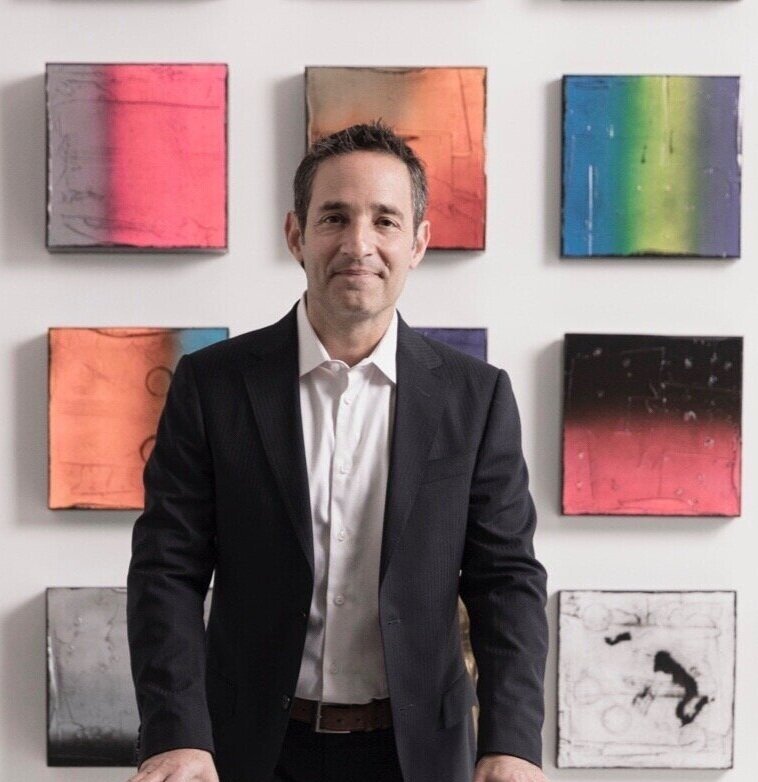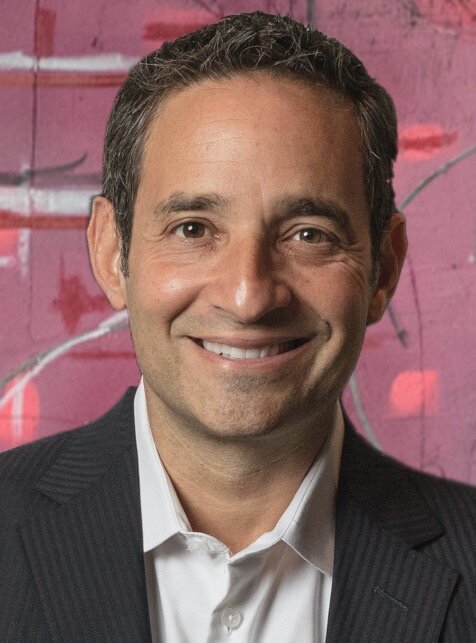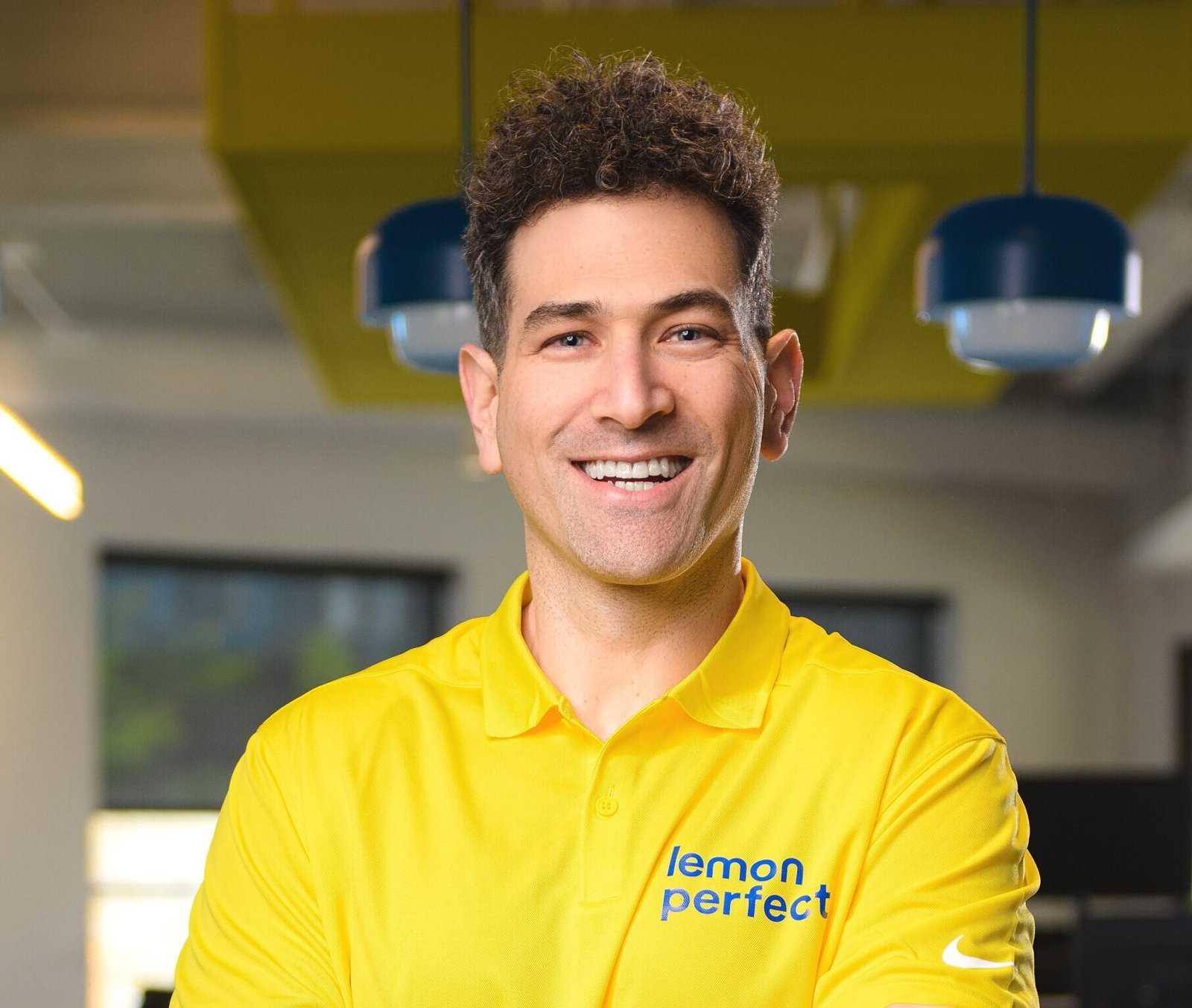I recently went one on one with Josh Linkner. Josh is New York Times bestselling author and founder and CEO of five tech companies, which sold for a combined value of over $200 million. Josh has twice been named the Ernst & Young Entrepreneur of the Year and is the recipient of the United States Presidential Champion of Change Award. Josh has invested in and/or mentored over 100 startups and is the Founding Partner of Detroit Venture Partners. Josh’s newest book Big Little Breakthroughs is set to be released in April.
Adam: Thanks again for taking the time to share your advice. First things first, though, I am sure readers would love to learn more about you. How did you get here? What experiences, failures, setbacks or challenges have been most instrumental to your growth?
Josh: I’ve pursued a non-traditional path since day one. I started my career as a jazz guitarist, putting myself through college playing music. I then went on to start, build and sell five technology companies. Much of my approach to business is actually rooted in jazz music – taking responsible risks, making mistakes and quicky course-correcting, improvising, collaborating in real-time. I built a company called ePrize which became the largest digital promotion agency in the world. After selling the business, I started a venture capital fund in my hometown of Detroit in an effort to help restore our beloved city. Since then, I’ve been involved in over 100 startups. I’ve also written four books on innovation and creativity – my greatest passion – and delivered over 1000 keynote speeches around the world.
You mentioned formative experiences, and the failures and setbacks along the way (of which there were many) actually elevated me the most. There’s a saying from a Zen proverb that really strikes me: “Fall seven times, stand eight.” When we stop thinking about failure as a scarlet letter but rather a badge of honor, we gain the courage and momentum to achieve greatly.
Adam: How did you come up with your different business ideas? What advice do you have for others on how to come up with great ideas?
Josh: In my own businesses and the hundreds of entrepreneurs I’ve worked with and interviewed, the best starting point is to fall in love with the problem. Instead of inventing a specific solution and remaining steadfast, the most successful leaders immerse themselves in the problem they’re trying to solve. They examine it; they bathe in it. They remain committed to solving the problem in the best possible way rather than becoming tunnel-visioned on an individual approach.
In terms of idea generation, many of us rely on traditional brainstorming, which is wildly out of date and ineffective. Instead, I’ve developed a series of ideation techniques which I called Idea Jamming. These are a much more effective (and fun) mechanism to generate ideas. Here are a few examples from my innovation toolkit:
ROLE-STORMING: Instead of brainstorming as yourself (and being solely responsible for any ideas generated), try brainstorming as someone else. In other words, generate ideas in character.
THE BAD IDEA: With so much pressure to discover the perfect idea, we can easily get stuck. Here, look for the worst ideas you can imagine. After you exhaust your bad thinking, review the list and see if you can flip the lousy ones into something fresh and new
INVENT YOUR ENEMY: Imagine an ideal, make-believe competitor. Unlimited capital, no bureaucracy, top talent. Next, imagine you work there and are tackling a tough problem. How would they solve it? How would your enemy seize the opportunity?
THE JUDO FLIP: Instead of the obvious approach, what would it look like if you flipped tradition upside down? Examine the polar opposite of conventional thinking to unlock a distinctively different path forward.
Adam: In your experience, what are the key steps to growing and scaling a business?
Josh: Too many leaders stumble as they scale because they focus on what they do instead of who they are. I think it’s crucial to establish your cultural values early on, having them serve as an operating system for the team. In my case, I’ve established 14 core principles that guide every decision and every behavior each day. We don’t just say these principles, we live them.
Also, it is important to recognize that the things that get you from point A to point B may be very different than those that get you from point C to point D. Companies and teams need to evolve as both the external and internal landscapes change.
Adam: What are the keys to building a winning organizational culture and a culture that fuels innovation?
Josh: First and foremost, we must create an environment that is safe. Fear, not natural talent, is the single biggest blocker to creativity. In fact, fear and creativity cannot coexist. Leaders must create an environment where all ideas are celebrated, including the lousy ones. From there, the best innovative leaders create rituals and rewards to support the innovation process. For example, one company I work with issues every team member two ‘corporate get-out-of-jail-free’ cards each year. They tell the team that everyone is an innovator, encouraging them to take responsible risks. If a team member screws something up, they hand in a card and they’re off the hook, no questions asked. On the annual reviews, a leader will be disappointed with a team member if they didn’t use both cards. Key here is a tangible ritual to drive creativity.
Adam: What do you believe are the defining qualities of an effective leader? How can leaders and aspiring leaders take their leadership skills to the next level?
Josh: The most effective leaders come from a place of service. It isn’t just about their ego or corner office, but rather it’s a calling to elevate others. Benevolence, compassion, and humility are leadership strengths, not weaknesses.
From there, two other leadership attributes are crucial. First, a deep willingness to push the creative boundaries. This includes a disdain for the status quo, remaining rather dissatisfied with current conditions and a willingness to pursue what’s possible. Leaders who imbue creativity into every corner of their organizations are the most effective. Next, great leaders hold themselves and those around them accountable for results. Just the right balance of creative vision with disciplined execution is the model of leadership success.
One suggestion for those wishing to grow as leaders – do your boss’s job. I’m not talking about a leadership coup, but instead start doing the next job up before you’re actually promoted. Start taking broader responsibility, start taking initiative before you’re asked, start elevating others. If you begin to act like the leader you want to be, you’ll be recognized as such.
Adam: What are your three best tips applicable to entrepreneurs, executives and civic leaders?
Josh: Tip #1: Don’t forget the dinner mint. A fun way of saying that we should over-deliver on expectations as a habit. A small, 5% plus-up to any project, effort, or act of service will yield a disproportionate set of rewards. When you add in a small, unexpected creative flourish, you immediately stand out from the competitive pack.
Tip #2: Use every drop of toothpaste. Here, I’m suggesting you find ways to figure things out with the resources you already have. Take a scrappy approach, using your ingenuity and resourcefulness to achieve instead of relying on external resources.
Tip #3: Start before you’re ready. Instead of waiting for permission, a directive, or ideal conditions, just jump in and figure it out as you go. This requires the willingness to proceed in the face of ambiguity, to pivot as needed, and to remain fluid and agile. Simply put, don’t wait.
Adam: What is your best advice on building, leading and managing teams?
View your role as a Sherpa. Sherpas help climbers summit Mount Everest… they help others reach the top, and in doing so, they summit themselves. Your primary role as a leader is to do everything you can to help those on your team succeed, not to boost your own position or ego. In the service of others, you’ll achieve far more than you would by thinking of leadership as a mechanism for self-gain.
Adam: What are your best tips on the topics of sales, marketing and branding?
Josh: Tip #1: Stand out. Too often, brands in a particular industry all sound alike. Think of banks, cars, or breakfast cereals… all pretty much the same. The best marketers focus instead on what makes them different. They feature their uniqueness every chance they can. Being confused with a competitor is the greatest insult of all. Instead, focus on being unmistakably different.
Tip #2: Make it about your customer. People care about one thing – themselves. They don’t care how many awards you’ve won or how smart you are. Make your customer the hero of every marketing communication, focusing on how you’ll solve their problem or make their lives better. Make it about them instead of you, and your business will soar.
Tip #3: Experiment constantly. Too often, we overestimate the risk of trying something new while we underestimate the risk of standing still. The best leaders and marketers are always tinkering and experimenting with fresh, new approaches rather than getting stick in routines.
Adam: What is the single best piece of advice you have ever received?
Josh: Best advice I’ve received: Investing in your own learning and growth is the best investment you can make. Becoming a lifelong learner, and building a learning organization, is crucial to sustainable success. Those that learn the fastest, grow the fastest.
Best advice I’ve given: I have one quote that I’ve repeated constantly over the last 30 years in business: “Someday, a company will come along and put us out of business; it might as well be us.” Recognizing that success is a temporary state in the context of many external and constantly changing factors, it’s up to each of us to reinvent on an ongoing basis.
Adam: Is there anything else you would like to share?
Josh: Personally, I’m on a mission to help everyday people become everyday innovators. To that end, I encourage people to consider a ‘5% Creativity Upgrade’. A small and deliberate effort to boost your creative output can be exactly the edge you’re looking for. It’s free, accessible to all, and can drive quick results. If you’re ready to pursue your own 5% Creativity Upgrade, visit BigLittleBreakthroughs.com to guide you through every step of the process.









